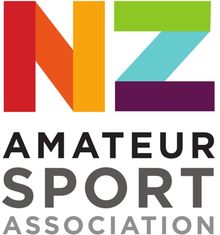Wellington's Ghost Rugby Clubs - The Wednesday Football Club
Above: The Wellington Wednesday Representative Team of 1909, selected from Wellington’s Wednesday Clubs
WELLINGTON’S “GHOST” RUGBY CLUBS
Part 7 – The Sporting Mayors Of The Wednesday Football Club
In 1894, the Liberal Government of the day passed the Shops and Shop-Assistants Act, under which all shops in Wellington City, (except a chemist, fishmonger, fruiterer, confectioner, coffee-house keeper, eating-house keeper, or the keeper of a bookstall on a railway-platform), were to be “closed in each week on the afternoon of one working-day, at the hour of one of the clock”. In response, the Wellington Half-Holiday Association (comprising the Drapers, Clothiers and Mercers of the city), determined that Wednesday would be the day on which their businesses would close.
Both the City Drapers Football Club and the United Tradesmen’s Football Club had been formed a year earlier in 1893 and were the first two rugby clubs to promote the idea of a Wednesday afternoon rugby competition, as a result of the law change. Before this time, regular (generally annual) matches were played between the various trades of the city, outside of the regular Wellington Rugby Union competitions.
In May 1895, George Bernard Nicholls, proprietor of the “Golden Rule Bazaar”, a toy and fancy goods emporium at 319 Lambton Quay, (an old address now opposite the old Government Buildings), proposed to form a new Club, “to embrace all trades”, (not just the clothing merchants). And so later that month, the Wednesday Football Club was formed for those able to play on the Wednesday half-holiday. The Club was based at the Nag’s Head Hotel in Cuba Street. Nicholls formed a team comprising (including himself), P. B. Muir, A. Whiteford, H. Wyatt, Wilkinson, S. Cimino, J. Martin, Colton, Sutherland, Parker, Burton, A. Barnett, James, Forres, and H. Gieson. It was a short-lived name, as the following month the name of the Pirates Wednesday Football Club was adopted, with the re-named club deciding to join the Wellington Rugby Union.
The following year, in March 1896, the City Drapers and Hardware Football Clubs merged to re-form the Wednesday Football Club, appointing Francis Henry Dillon Bell (a member of the original Wednesday Football Club and the Mayor of Wellington in 1896) as the Club’s President. Earlier, Bell was the founding President of the Athletic Football Club (now Western Suburbs) in 1877, a position he held for over 20 years. He was also President of the Wellington Rugby Union from 1894 to 1896 and ardently supported the concept of a Wednesday half-holiday competition being established by the Wellington Rugby Union.

The Hardware Club was formed around the employees of John Duthie and Co., General Hardware Merchants and Wholesale and Retail Ironmongers, based on Willis, Victoria, and Mercer Streets. Rugby fixtures between the various hardware firms in the city dated back to 1886. Like Bell, John Duthie was also a Mayor of Wellington (from 1888 to 1890) and MP for Wellington City from (1890 to 1905). Alongside Bell, Duthie was also a driving force behind the initial Wednesday competition.
The re-formed Wednesday Football Club, which had both first and second fifteens, played a pre-competition fund-raising match against Greytown in early 1896, to support the Brunnerton Relief Fund – (readers may recall that 64 men died following an explosion in the Brunner Mine, in March of that year). The team which played in the Charity Match comprised Donnelly, Arnott, McNeil, Herbert, Pudney, Turner, McGuire, Slinn, Duthie, McAlpine, Orr, Lush, Johnson, Hooper, and Shepherd.
In 1896, the Wellington Rugby Union finally established a competition for Wednesday half-holiday clubs, which continued for the next 20 years, playing under the same condition as the Wellington Junior Championship. The affiliation fee for participating clubs was 2 pounds, 2 shillings. The first teams to compete in the new competition were the Wednesday Club, the Pirates, United Tradesmen, St. Patrick’s College A, St. Patrick’s College B, Petone, Athletic, and Melrose. John Duthie presented a Cup, (the “Duthie Cup”), for competition.
Past students of St. Patrick’s College, Silverstream before 1990 (including this writer), will be very familiar with the “Wednesday half-holiday”, and Saturday morning classes. The origins of this traditional half-day holiday (originally for rugby fixtures), harks back to the Wednesday half-holiday rugby competition of 1896 and the original College based at Cambridge Terrace.
The Wednesday Football Club won the 1896 competition (which was stipulated to comprise only one round when established), before the Wellington Rugby Union decided to allow a second round. As a result, the Wednesday Club withdrew from the competition in July 1896. Petone (reportedly fielding a team comprising Saturday players, which was not permitted under the rules of the competition), won the inaugural Duthie Cup with a 19 points to 6 final round victory against the United Tradesmen, who were competition runners-up.
The Wednesday competition lapsed for the next two years, with some in the press noting “the apathy of the Wellington Rugby Union was responsible”. However, a four-team competition to be played over three rounds was re-instituted by the Rugby Union in 1899, at which time the Combined Drapers and United Tradesmen had reformed their respective clubs, with John Duthie aligning himself with the clothing merchants, as their delegate to the Rugby Union.
The mid-week players (who, as noted above, were not permitted to play in Saturday teams), were recognised by the creation of a representative side. In August 1895, the first Wellington Wednesday representative team played against the N’tu Ahuriri Club, with inter-provincial matches being introduced a decade later, against Wairarapa, Manawatu and Horowhenua selections. Annual matches against the Wellington Junior Representatives (Saturday players), also became a regular feature of the Wellington rugby calendar.
In May 1903, the old Wednesday Football Club merged with the Oriental Football Club following “an enthusiastic meeting … in the New Zealander Hotel”, becoming known as the “Oriental Wednesday team”. The new side subsequently went on to win four titles, (one tied with Petone) over the next decade. In the ensuing years, a number of new clubs participated in the Wednesday competition including the Butchers Football Club (formed in 1908), Bakers Football Club (formed in 1907), Permanent Artillery Football Club (formed in1899), Tramways Football Club (formed in 1908) and the Star Wednesday Football Club (formed in 1903).
In April 1915, a vote of Wellington City electors was taken to move the Wednesday Half-Holiday to Saturday. It was passed by a narrow margin of 622 votes (9,835 in favour of Saturday, 9,213 in favour of Wednesday). The change (which was implemented the following month), meant that the Wellington Tramways Football Club had to withdraw from the Wednesday competition, with the Oriental, Butchers, Permanent Artillery and Petone clubs also choosing to change to compete on Saturdays.
In May 1903, the old Wednesday Football Club merged with the Oriental Football Club following “an enthusiastic meeting … in the New Zealander Hotel”, becoming known as the “Oriental Wednesday team”. The new side subsequently went on to win four titles, (one tied with Petone) over the next decade. In the ensuing years, a number of new clubs participated in the Wednesday competition including the Butchers Football Club (formed in 1908), Bakers Football Club (formed in 1907), Permanent Artillery Football Club (formed in1899), Tramways Football Club (formed in 1908) and the Star Wednesday Football Club (formed in 1903).
In April 1915, a vote of Wellington City electors was taken to move the Wednesday Half-Holiday to Saturday. It was passed by a narrow margin of 622 votes (9,835 in favour of Saturday, 9,213 in favour of Wednesday). The change (which was implemented the following month), meant that the Wellington Tramways Football Club had to withdraw from the Wednesday competition, with the Oriental, Butchers, Permanent Artillery and Petone clubs also choosing to change to compete on Saturdays.
As the curtain went down on the Wednesday competition, over the 15 years it was played the record shows that, Oriental and Petone won four titles (one tied), Permanent Artillery three, Athletic two, and the United Tradesmen, Stars and Tramways, one each.
In a strange twist of circumstance, the year of the death of Wednesday rugby in Wellington coincided with the death of the Wednesday Football Club’s strongest advocate, John Duthie. “He was in most things a big man - big in courage, big in fighting spirit, big in capacity, big in his public spiritedness, big in the high standard of integrity he set for himself, big in his friendships, and big in his dislikes.” We should also record he was big in his influence in bringing mid-week rugby to the working men of Wellington.
Steven White, 19 Mar 2019
Adam Julian, 19 Mar 2019
Steven White, 12 Mar 2019
Adam Julian, 04 Mar 2019
Steven White, 12 Feb 2019








.jpg)






